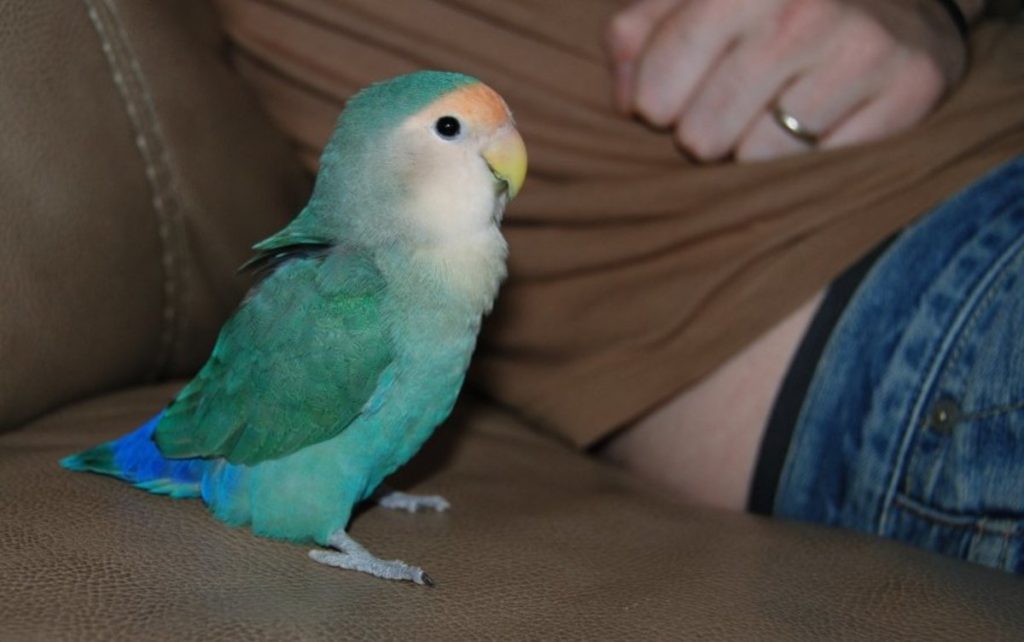Are Lovebirds Noisy?

Lovebirds are chatty birds with high-pitched voices. They make noise throughout the day, but are especially vocal at dawn and dusk. They can also be noisy if they are reunited with their mate after a long period of time, or if they feel lonely. They can also become noisy due to fear, overstimulation, or boredom.
1. They are bored
Lovebirds can become very noisy if they are bored. They may chew or play with their toys to kill the boredom. However, this behavior can also be a sign of an illness and it is essential to take them to the vet immediately.
In the wild, lovebirds are highly sociable and tend to live in groups. However, many pet owners keep them alone in cages. This can cause the bird to become very noisy and chirp often. To prevent this, place the cage in a room with fewer distractions and don’t play loud music or TV near them.
It is also advisable to leave the cage in darkness at night, as this will help the bird sleep better. You should never walk by the cage or turn on the lights while it is sleeping, as this might wake the bird up and make it noisy. If the chirping persists, it is best to get the bird to the vet immediately.

2. They are screaming
Lovebirds can be very loud birds and their screeching is a part of the overall lovebird experience. They may make noise in the morning when you wake up, at the beginning of their meals or during play time with you, and it adds to the rhythm of your day.
Sometimes, a bird will screech when it is sick or injured. It is important that you consult an avian veterinarian to diagnose any health issues. The veterinarian will also be able to provide medication and tips on how to care for the bird.
You should avoid scolding your lovebird when it screams, as this will just reinforce the behavior. You should also avoid focusing on the bird when it screams. It is a good idea to leave the room where the cage is located when it begins screaming without any provocation. Over time, the bird will learn that it will not receive attention when it screams, and it will eventually stop doing so.

3. They are sleeping
When lovebirds are sleeping, they make small noises such as gurgling and chirping sounds with closed eyes. They may also squawk if they are injured and in pain. If your lovebird is doing this, try to look for the cause of its problem.
In addition, it is possible that your bird is squawking because of fear. This is something that happens in the wild when they sense danger and want to warn their companions about it.
You should avoid waking up your lovebird when it is sleeping at night. Doing so will disturb its sleep cycle and could cause behavioral problems for your pet. Instead, leave their cage in a place where you don’t need to pass by or turn on the lights during its sleeping hours. Alternatively, you can place a dim nightlight in the room so that your lovebird will be able to see their cagemate in case they wake up during the night.

4. They are eating
Lovebirds, like all animals, make noise to communicate. They chirp and vocalize to talk with one another, but they also chirp to be alert and warn of potential threats in their environment.
They are particularly active as soon as they wake up in the morning and before they go to sleep at night. They eat in their cage and make noise when they see or hear something that makes them excited, scared or nervous.
When they are feeling anxious or bored, the chirping gets even louder. This is usually because they are trying to break out of their cage or escape from a stressful situation.
To reduce the amount of chirping, keep your lovebird in a room that is not frequented for movie nights, family get-togethers and other noisy activities. Keeping the lights off and covering their cage at night may help, too. This will prevent them from being startled by light or outside movement that they may interpret as a possible threat.





